Being a skilled mental health professional isn’t enough if people can’t find you online. In today’s digital-first world, Search Engine Optimization (SEO) is one of the most important tools for building a successful private practice. It’s not about gaming algorithms—it’s about showing up with clarity, trust, and relevance when someone searches for help.
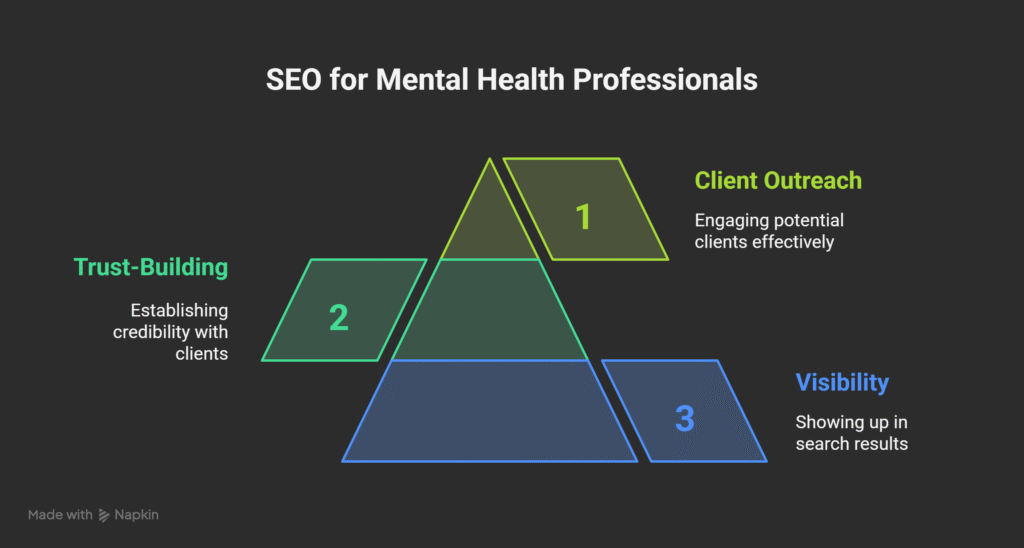
This guide breaks down how SEO supports your visibility, trust-building, and client outreach in a sustainable, authentic way.
Understanding Client-Centered SEO
The core of SEO for therapists is empathy. Think like your ideal client—someone searching not for “CBT with trauma focus,” but for “why can’t I stop overthinking” or “online therapy for anxiety.” That mindset shift will guide your entire strategy, from keyword research to content writing.
A high-performing site answers these types of questions in clear, supportive language. It creates emotional safety while also satisfying Google’s technical standards.
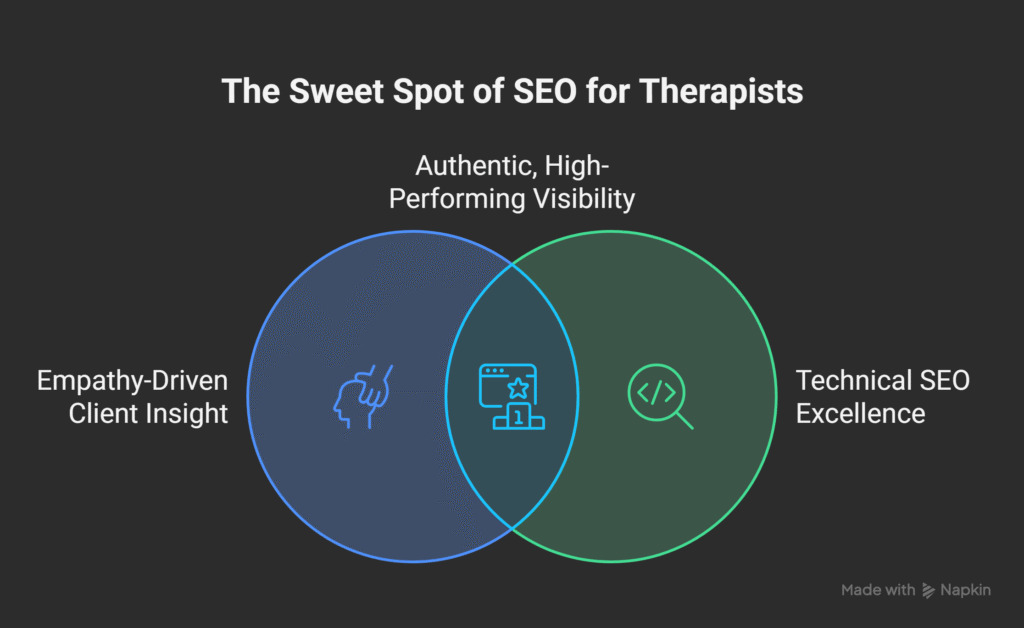
Keyword Research: Meeting Clients Where They Are
Begin with a list of terms your ideal clients might type into Google. Use tools like Google Keyword Planner, Ubersuggest, or even autocomplete to see how people phrase their mental health concerns.
Target combinations of:
- Core services (“anxiety therapy,” “grief counseling”)
- Location (“in [City]” or “near me”)
- Delivery model (“online,” “virtual,” “teletherapy”)
- Outcomes (“feel less anxious,” “stop panic attacks”)
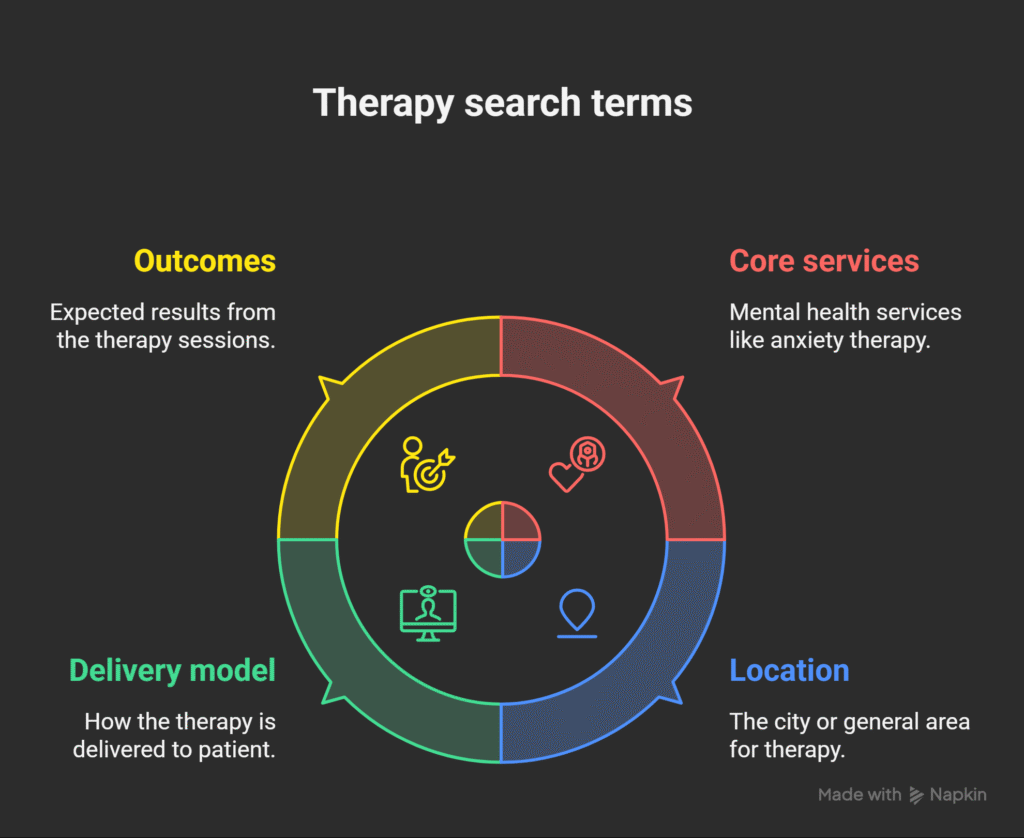
Using long-tail keywords (3+ words) helps you connect with more intentional, high-converting searchers.
Structure Your Site for Clarity and SEO
Your website must be structured not just for aesthetics—but for ease, flow, and relevance. Build it around clear categories that align with user needs.
Recommended layout:
- Home: Highlights core promise and guides next steps
- About: Humanizes your credentials and mission
- Services: Breaks down specialties clearly
- Blog or Resources: Adds value and SEO power
- FAQs: Answers practical concerns
- Contact or Book: Simplifies outreach
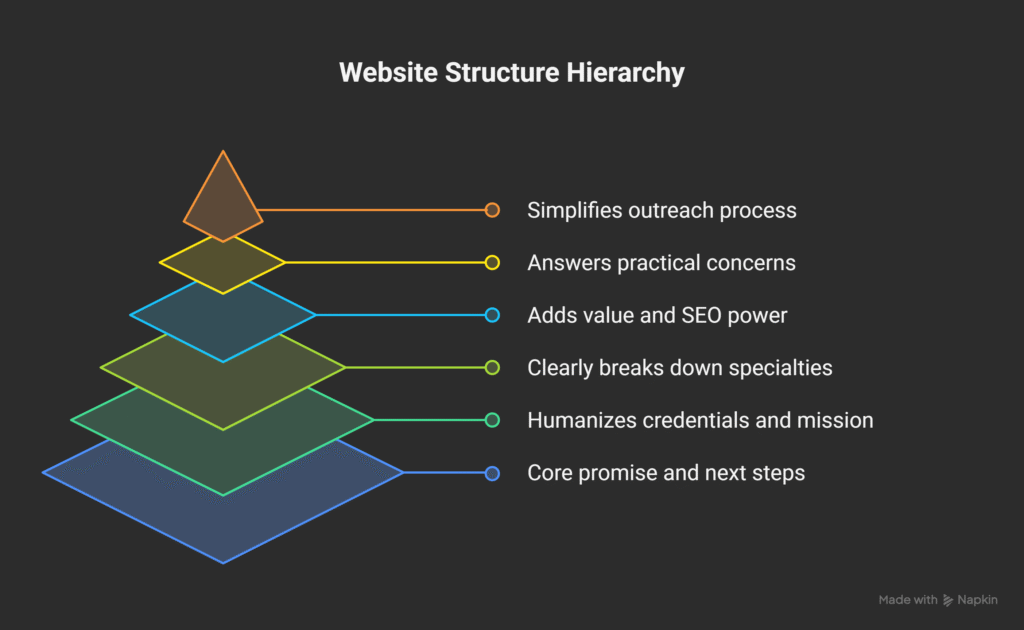
For a deeper breakdown, check out The Top Features Every Therapy Website Needs to Convert Visitors into Clients.
Content That Connects and Converts
Great content answers questions, eases fears, and guides action. It’s what makes people stay on your site—and trust what you offer.
Examples of strong blog content:
- “What to Expect in Your First Therapy Session”
- “How to Know If You Need Professional Support”
- “What Does Anxiety Feel Like (and How Can Therapy Help)?”
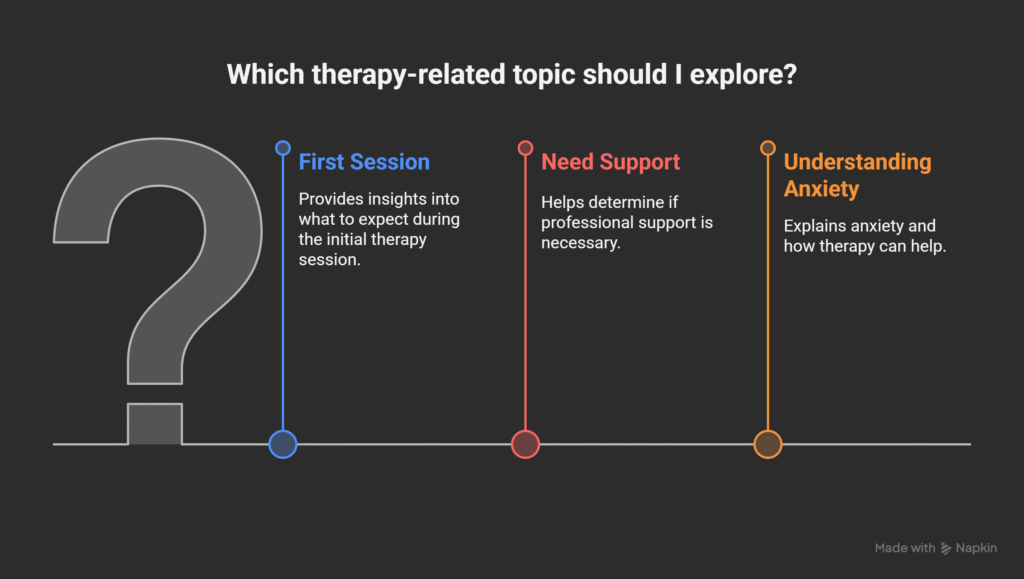
Each blog should end with a gentle invitation—“If this resonates, let’s talk”—linked to your booking or contact page.
To learn how to create content that feels real and ranks well, explore Why Every Therapist Needs a Blog.
Local SEO: Be Seen in Your Area
Even if you offer teletherapy, showing up in local search is essential. Optimize for location-based keywords (e.g., “depression therapy in Austin”) across:
- Page titles and meta descriptions
- Headings and body text
- Google Business Profile
- Local directory listings (Psychology Today, TherapyDen, etc.)
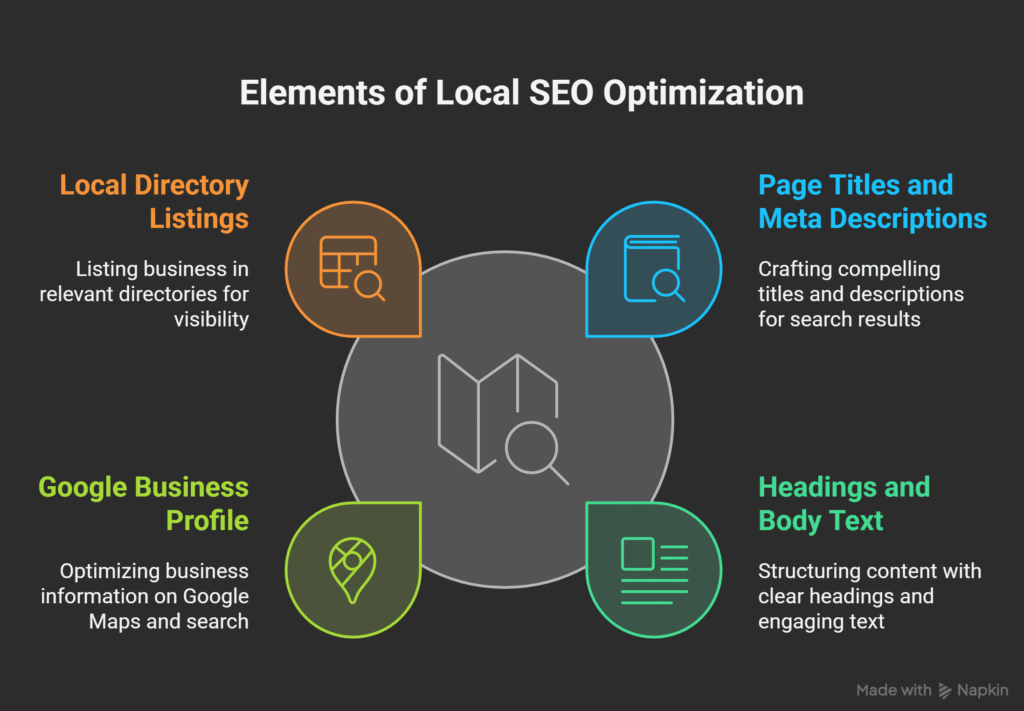
Embed a map on your Contact page and add client-facing details like parking, accessibility, and nearby landmarks.
Get a step-by-step process in How Local SEO Can Help Therapists Attract More Clients.
Technical SEO: Performance That Builds Trust
Your site should be technically sound to ensure fast loading, mobile responsiveness, and secure browsing.
Key factors:
- Use responsive layouts for all screen sizes
- Compress images for faster load times
- Avoid pop-ups that interfere with mobile use
- Add alt text to all images for accessibility and SEO
- Use secure HTTPS hosting and SSL certificates
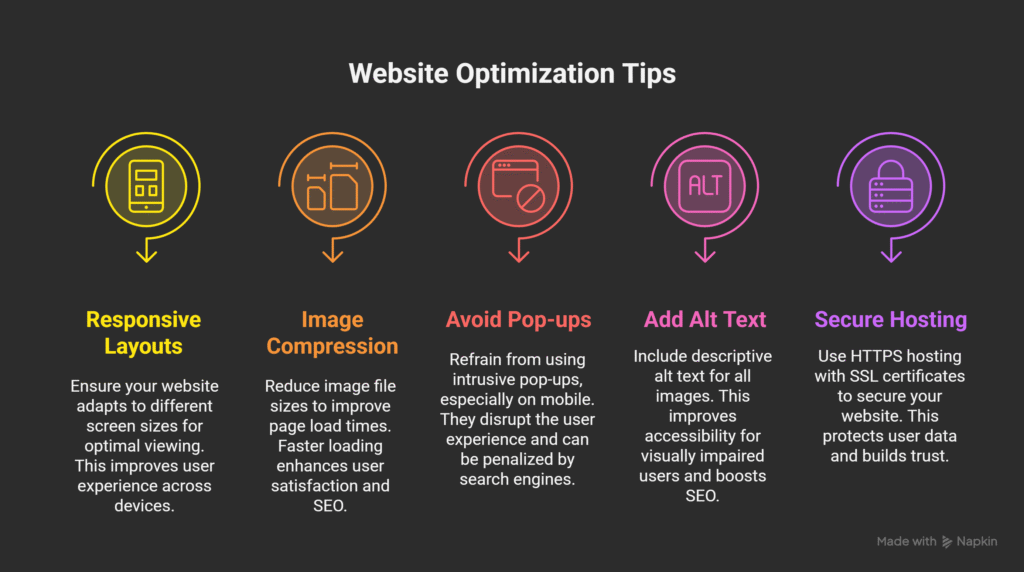
Improving your site speed can also reduce bounce rates. Read more in How a Fast Mobile-Friendly Website Can Boost Your Practice’s Growth.
Teletherapy SEO: Stand Out with Clarity
If you offer online counseling, SEO needs to reflect that clearly. Create a dedicated page titled “Online Therapy” or “Telehealth Counseling Services” and answer:
- How it works
- What clients need to access it
- Which concerns can be addressed virtually
- What platforms you use (HIPAA-compliant Zoom, etc.)
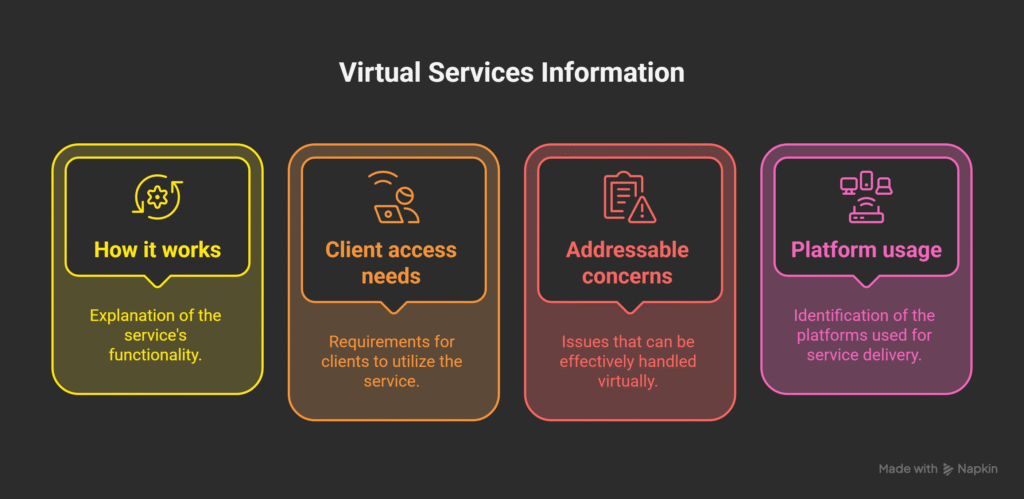
You can expand with blog content like “Is Teletherapy Right for Me?” or “How Online Therapy Works for Anxiety.”
For best practices, visit Build a HIPAA-Compliant Teletherapy Website.
Measuring Success and Making Improvements
SEO isn’t a set-it-and-forget-it process. You’ll need to track:
- Keyword rankings
- Organic traffic trends
- Page engagement (bounce rate, time on page)
- Inquiries and booking conversions
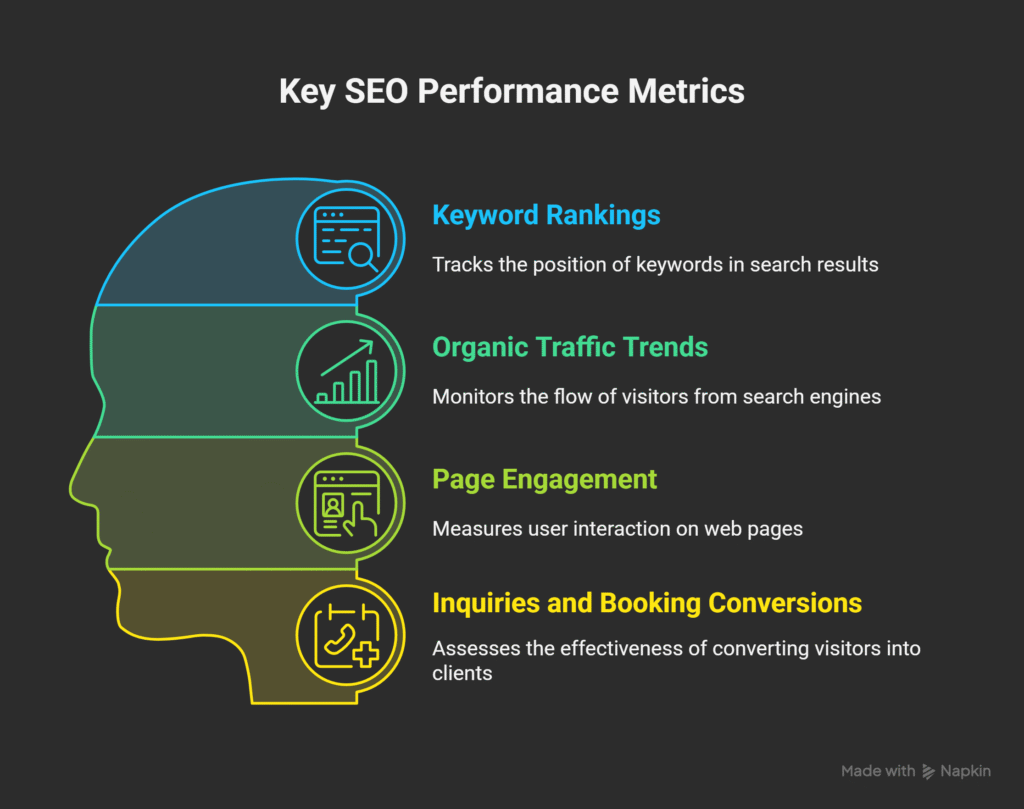
Use Google Analytics and Search Console to spot which pages perform well, and which need updates. Update old posts with new stats, better CTAs, or clearer layout.
Conclusion: Real Visibility, Real Growth
When mental health professionals embrace SEO with empathy and strategy, it becomes more than just a marketing tactic. It’s a tool for reaching people who are actively seeking support. Whether you’re writing blog posts, refining your homepage, or claiming your Google Business Profile, every small SEO step contributes to someone finding help—and choosing you to guide them.
Need help building an SEO-friendly therapist website or blog? Explore therapist-specific strategies and services at Mental Health IT Solutions.






